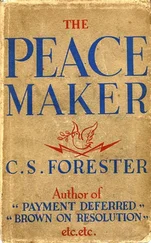When the Encyclopedia Britannica writes its little biographies of mathematicians and similar odd people, it is generous enough in its praise of their achievements. Sometimes, indeed, it even condescends to some small detail of their private lives, saying, perhaps, "for the next twenty years he was happily occupied as Professor of Mathematics at So-and-So University," and sometimes even, it goes so far as to give a vague hint of "domestic trouble, or illness." But from those poor data it is hard to conjure up a complete picture of the life of such a man as Pethwick, of the troubles and distractions caused him by such things as far unconnected with mathematics as his strong views upon disarmament and the facts that he loved his headmaster's daughter, and that a silk hat did not suit his looks, and that his wife was a slovenly and malicious drunkard, or even that the Officers' Training Corps should choose to hold a rehearsal of a review under the windows of his room, in the afternoon following a morning when Vb had been badly behaved and the Upper Sixth had been worse.
Perhaps all these dissimilar ingredients contributed to the sigh with which Pethwick picked up his pen again in his long, beautiful fingers and addressed himself to the tangle of neat symbols while, outside, the band blared and the Officers' Training Corps plunged into the complicated wheel which was to get them into position for the march past.
It is conceivable that the distraction did Pethwick good, that the few minutes during which his mind had been empty of his work gave it an opportunity to rally for the last final effort. But it is just as likely that the stimulus given to his circulation and reactions by the distant sight of Dorothy Laxton may have been responsible. However it was, Pethwick's pen moved across the paper without hesitation for some minutes. Line was added to line of the calculation. Two nasty corners were turned by ingenious devices. The expression simplified itself.
Pethwick's eyebrows rose at one discovery; it was all very surprising. If he had been able to carry the calculation in his head he might have deduced all this weeks ago, and he was rather annoyed with himself for not having done so—he told himself that Gauss or Clerk Maxwell would have achieved the feat easily; in that he was wrong, betrayed into error by his habitual poor opinion of his own capacity.
The mathematical expression had been reduced now to the simplest form such a thing could possibly attain, and Pethwick looked at it with surprise. This was not what he had started to prove. He had set out to find a zero, and here was definite evidence that there was not a zero to be found; that when all allowances had been made there was a substantial residuum left over.
That was how Pethwick regarded it; actually he deserved a good deal more credit. Before he had set about this calculation the flair, the inspiration, which denotes the great scientist had told him that there might perhaps be this residuum despite the general consensus of mathematical opinion. The notion had bothered him until he had determined to settle it once and for all. Now he had proved himself right, proved that the two minor factors to which a whole series of keen minds had refused to attach importance were important after all, and he had already formed an erroneous estimate of his own achievement. He told himself that he had believed he would reach a zero and had reached a positive result instead, whereas actually in his heart of hearts he had known all along that he would reach that result. But Pethwick could never give himself credit for anything.
All the same, it was equally characteristic of him that he did not look back through his calculation to check its correctness. He knew that was all right. The only doubtful point was whether Klein's original figures, with Norbury's elaborations of them, were accurate.
Pethwick looked again at Norbury's eloquent paragraphs in the Philosophical Transactions of the Royal Society which had originally inspired his investigation. Klein was probably accurate, and Norbury was certainly right as far as he had gone—which was not very far. At that rate the result which Pethwick had reached was exceedingly interesting mathematically. The experimental investigation which should follow would also be interesting. Pethwick was not very excited at the thought of that. He was much more of a mathematician than a physicist, and his lack of self-assurance made him continually doubtful of his manipulative skill.
But something might easily come of his discovery. There might be some application in the arts, in several directions. Electrical generation might be simplified, or for that matter broadcasting, or motorcar ignition. Because Pethwick had spent three weeks wrestling with figures housewives all over the world might find their electric irons cheaper to run, or little clerks might come home from their offices to listen in with more efficient radio sets, or ten million motorists in ten million garages would have to give one fewer turn to the cranks of their motor-cars on cold mornings.
Pethwick smiled with one side of his mouth at the exuberance of his imagination. There was an enormous distance between a row of figures on a sheet of paper and the general adoption of an invention which might possibly spring from bench experiments which might perhaps follow from those figures. But still, such was the stimulus given to his mind by this extravagant imagination of his that he resolved to carry out the very next day a few simple practical confirmations of his theoretical deductions. As he put his papers away in his desk he was already listing in his mind pieces of apparatus which he would need for preliminary work, and which the resources of the senior physics laboratory at the Liverpool School could provide.
As Dr. Edward Pethwick came out of the Science Buildings of the school into the courtyard (Mr. Laxton discountenanced the use of the word "playground," which had generally been employed before his accession) he encountered his headmaster and his headmaster's daughter coming away from the saluting point now that the review was over.
Dr. Pethwick lifted off his hat and passed on. Mr. Laxton nodded with a condescension which was made all the more remarkable by his morning coat and silk hat. Dorothy smiled very charmingly indeed. And as Dr. Pethwick went on, conscious of the fact that his coat crumpled below its collar, and that his soft hat was shabby, and his shoes unclean, Mr. Laxton cocked his head sideways after him and said:
"Queer bloke, that."
Mr. Laxton was of the type that cannot help making a comment about anyone he happened to encounter.
"Doctor Pethwick? I like him."
"Oh, he's all right, I suppose, in his way. But you have to be a damn' good disciplinarian before you can dress like that in a boys' school, you know, Dorothy. And he's not."
"I shouldn't think he was," said Dorothy.
Dorothy, as a matter of fact, was always reminded by Dr. Pethwick's appearance of the White Knight to Through the Looking-Glass—perhaps the most lovable character in English fiction, but hardly of the type to keep order in a secondary school.
"Honestly, Dorothy, I ought to get rid of him," said Mr. Laxton. "He can't keep discipline, and he can't teach, and he's no good at games, and his wife—"
"Don't let's talk about his wife," said Dorothy. She had heard too much about Mrs. Pethwick; wherever two or three women were gathered together in that suburb there was always some discussion of Mrs. Pethwick.
"But then, I don't know," said Mr. Laxton. "I thought about it when I first came here, and decided against sacking him then, and the same arguments hold good now, I suppose. He's an old boy of the school, you know, and although he is a London man, he's the only one left on the staff, thank God. Did I tell you the new man who's coming next term is Winchester and New?"
Читать дальше












